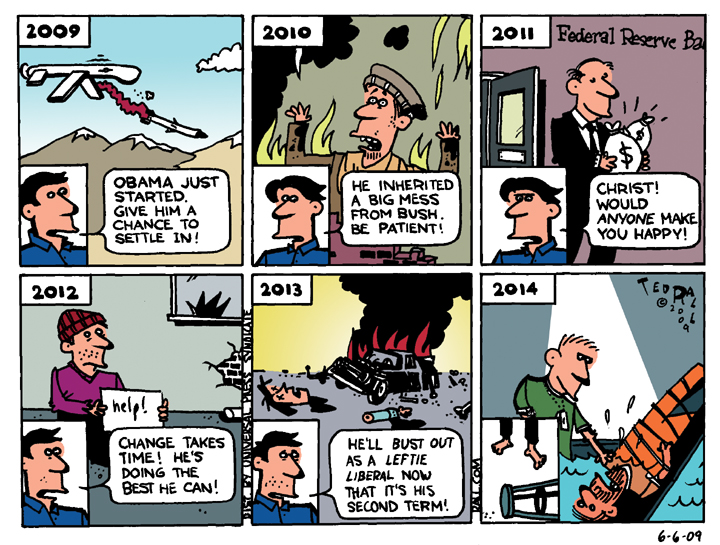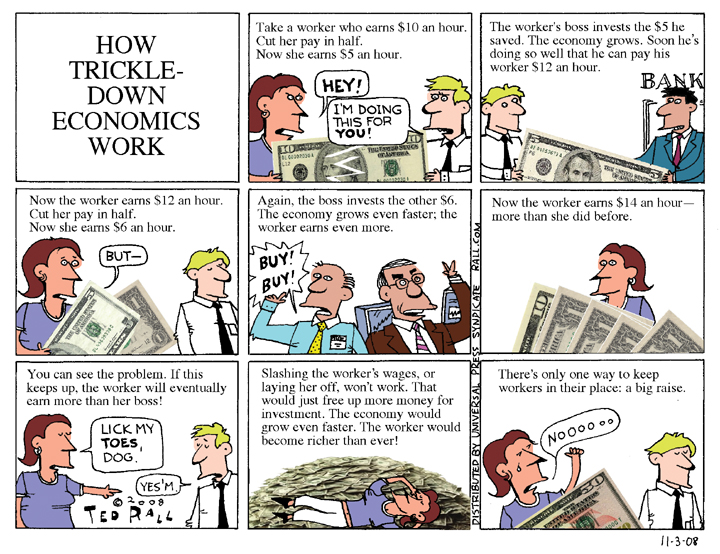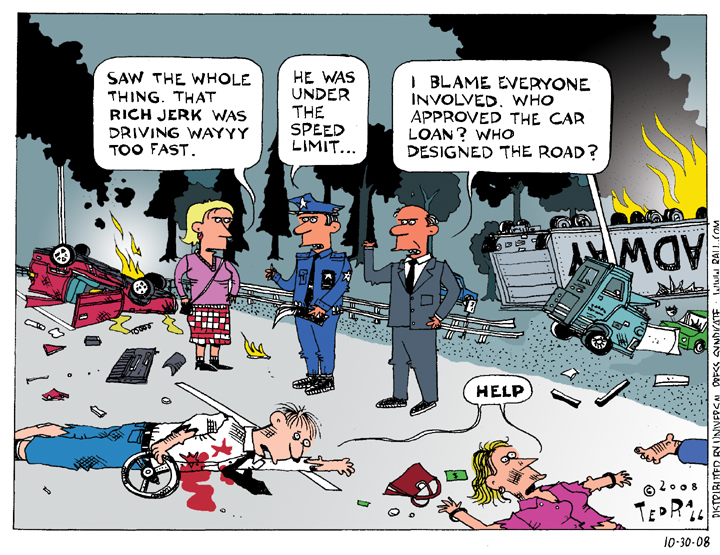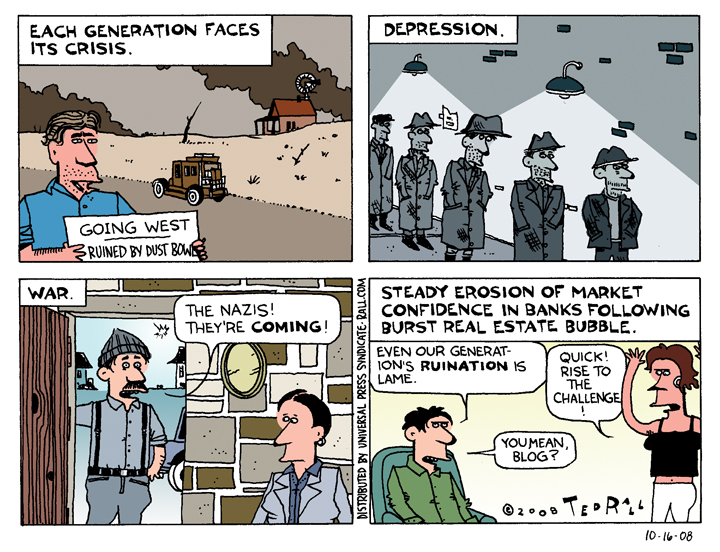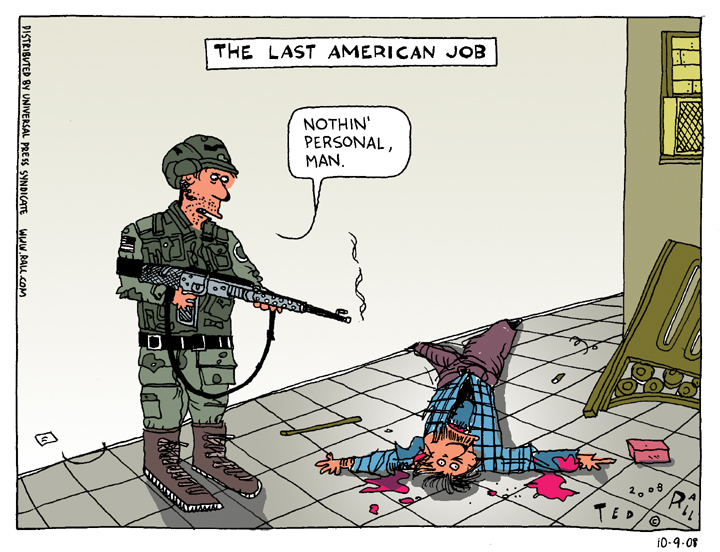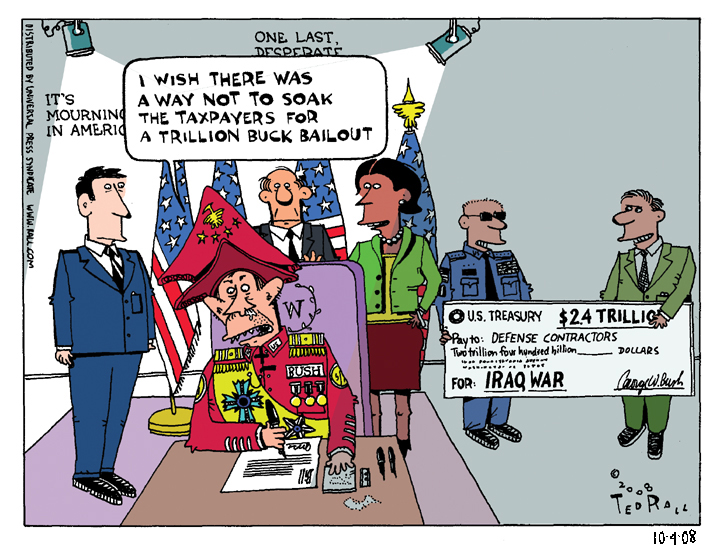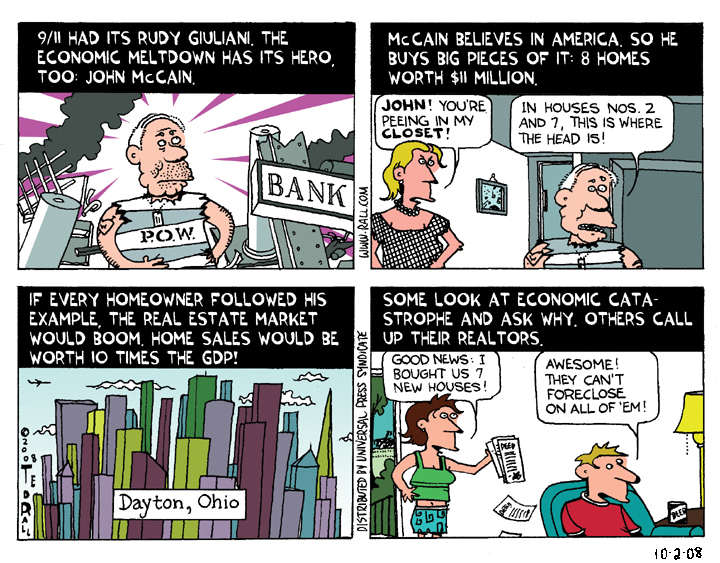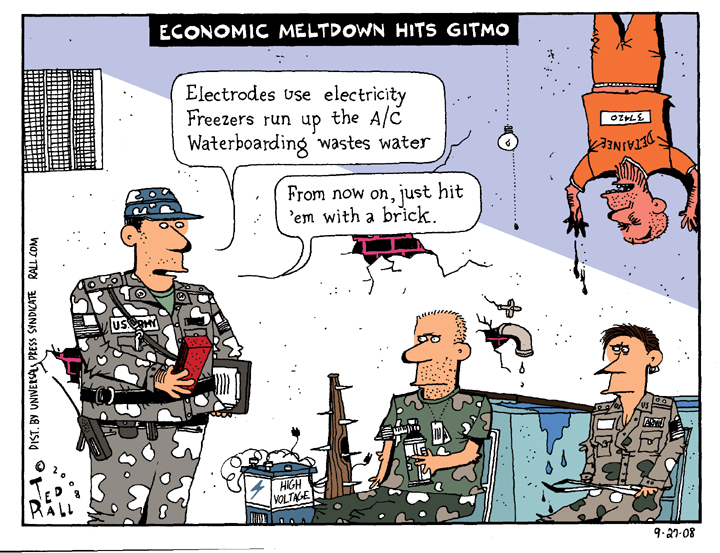Why Can’t the U.S. Move Forward?
“Your dearest wish is for our state structure and ideological system never to change, to remain as they are for centuries. But history is not like that. Every system either finds away to develop or else collapses.” Aleksandr Solzhenitsyn wrote that in 1974, in his famous “Letter to the Soviet Leaders.” But it could just as easily be addressed to President Obama, Congress, members of the media, corporate chiefs, and others who lead and maintain the power structure in the United States.
The United States is as ossified as the USSR was before its collapse.
Shortly after the start of the financial meltdown which began in 2009, polls found American citizens disgusted with the capitalist system. Tens of millions said they would prefer socialism. When the Occupy Wall Street movement took off in 2011, mainstream pundits began using the “R” word, revolution – but only to ask a question with a predetermined answer. Regime change, they said, was neither desirable nor possible.
Too bad.
We used to be a growing country. Not any more. We used to welcome new states into the Union. It’s been 53 years since we added a star to Old Glory; Puerto Rican statehood isn’t a subject of serious consideration. We used to amend the Constitution to suit changing mores. The last major amendment, granting the vote to 18-year-olds, was ratified in 1971. Apparently equal rights for women is too much to ask.
We don’t build anymore. Think about infrastructure. The last major public works project in U.S. history was the Interstate Highway System, built in the 1950s – not coincidentally when the economy was booming.
Our political system is ossified too. The massacre at Sandy Hook Elementary School in Connecticut prompted calls for tighter gun control. But nobody – not even liberals, the traditional enemies of gun rights – argued for getting rid of the Second Amendment which, depending on your interpretation of the prefatory comma, allows us to join a militia or carry guns in our waistbands. “I have no intention of taking away folks’ guns,” President Obama has said.
Well, why not? Personally, I’m against gun control and I’m glad that very little is going to change. Yet I find it disturbing that the Second Amendment is considered sacrosanct, even by the 24% of Americans who want to ban handguns. Pointing out that the country is very different now than it was in 1789 seems reasonable. Maybe we don’t need guns any more. A smart country, one willing to weigh the alternatives when trying to solve a problem, should be able to discuss the possibility of repealing the Second Amendment.
Look at our national political dialogue, which ranges from center-right (Democrat) to right (Republican). Whole strains of ideology – communist, socialist, nationalist, libertarian – are off the table. We pretend most of the ideological spectrum doesn’t exist. Not smart.
Our national unwillingness and/or inability to have a wide-ranging debate reminds me of New York City, where I have lived for many years. There are no public restrooms. Restaurants and other businesses post “Restrooms for Customers Only” signs on their doors. Yet peeing outside is against the law; in fact, it’s public exposure, a sex offense that can land you on a Megan’s Law-style pervert registry. So where are you supposed to go?
A child could tell you this is insane. You know what’s even more insane? That we New Yorkers don’t even talk about it. Like Germans on their way to work in the early 1940s, wondering what that funny smell coming from the camp down the road might be coming from, we pretend that this is all perfectly normal.
As a recent New York Times article by Louis Seidman pointed out, we have foolishly elevated the Constitution to the status of a sacred text, fetishizing a supposedly “living document” that in truth has been dead for years. (Congress, for example, has the sole right to start wars. President Bush ignored the U.S. Supreme Court’s decisions concerning POWs at Guantánamo. And so on.) The result, Seidman argues, is endless petty bickering about what the meaning of “is” is – and what that stupid comma was supposed to be for.
The question for any society is not how to figure out how to conform ourselves to rules and assumptions laid down by our forebears, but to come up with the smartest solutions to our problems and the best systems to make things run smoothly now and in the future. If we were revolutionaries, if we were inventing the United States from scratch, would we create the Electoral College? Doubtful.
The people of the United States are changing all the time, but the United States government and power structure are stuck. The political “culture wars” date to the 1960s and 1980s. Our military thinks the Cold War is still going on.
Our economy reflects our national congealing.
Once a “land of opportunity,” the U.S. is now anything but. If you’re born into a poor family, your chances of elevating yourself into the middle or upper class are lower in America than in other industrialized countries. “It’s becoming conventional wisdom that the U.S. does not have as much mobility as most other advanced countries,” says economist Isabel Sawhill of the Brookings Institution. “I don’t think you’ll find too many people who will argue with that.” Aside from the unfairness and the instability caused by inequality and lack of social mobility, we’re losing the talents of tens of millions of Americans who will never be able to live up to their potential, share their ideas and contribute to the making of a more perfect union.
We haven’t had a major social or political revolution since the 1960s. It’s been too long. Like the Soviet Union, we must develop – scrapping long-held assumptions and reconsidering everything from scratch – or collapse.
I think we’re headed toward collapse.
(Ted Rall’s website is tedrall.com. His book “After We Kill You, We Will Welcome You Back As Honored Guests: Unembedded in Afghanistan” will be released in November by Farrar, Straus & Giroux.)
COPYRIGHT 2013 TED RALL

